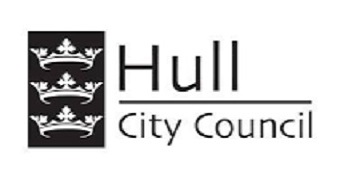Manchester to redouble efforts to tackle poverty
Manchester City Council has committed to creating a fairer city where residents can all benefit from the city’s success
A report, which will go before the council’s economy scrutiny committee tomorrow (September 9) and the council’s executive on September 15, will detail the impact Covid-19 has had on poverty in the city.
Working towards the city’s goals to become a global city by 2025 means the city has enjoyed many successes in recent years, but poverty remains a significant challenge and Manchester remains the sixth most deprived local authority area in the UK.
The council has now made a commitment to tackling poverty as a key element for realising the vision for the Our Manchester Strategy and supporting all Manchester residents to benefit from the city’s economic growth and success.
Poverty has a profound effect on residents, everything from life expectancy to employment opportunities, and the ongoing effect of the pandemic has shown how entrenched deprivation has impacted low-income households disproportionately.
For example, the pandemic saw a 90% rise in unemployment benefit claims, which was reflected in food support requests supplied by the Council, averaging 250 households a week during the early months of the pandemic.
The council also provided £56m in financial support for vulnerable people as part of the Covid-19 response in 2020/21 and is forecast to spend more than £144m in 2021/22.
The Family Poverty strategy was formally adopted in 2017, which aims to mitigate poverty through a range of interventions to:
- Create routes out of poverty through jobs that pay the living wage
- Raise and protect family incomes to support households to succeed
- Boost resilience of residents, including financial and debt management
Since the strategy was adopted, good progress has been made, including Manchester being named a Living Wage Employer – a key tenet of supporting households out of poverty.
The strategy has also looking to improve access to affordable childcare to better support working parents; set up distribution hubs in areas of high deprivation to tackle food poverty and holiday hunger; while also working with schools to improve training to spot the signs of poverty in young people.
Now, and in light of the impact of Covid-19, the council’s response to poverty will be redoubled to support residents who are more at risk of deprivation.

The council commits to:
Our Role as an Employer
The Council has worked to become an accredited Living Wage Foundation employer and encourages all the employers in the city to do the same – paying at least £9.78ph (‘Real Living Wage’ is £9.50). The Council is also committed to improving equality and inclusion in the organisation through a new Workforce Equality, Diversity and Inclusion strategy.
Social Value and Ethical Procurement
Our practices set a clear statement for ethical procurement to benefit the city and businesses directly, while also giving something back to our communities. In 2019/20, £353m was spent with Manchester organisations, while the Councils top 300 suppliers created 55,385 volunteering hours, 2,251 jobs and 576 apprenticeships.
Supporting our residents
Welfare provision remains a key direct support mechanism for our residents who need help. In 20/21, £3.2m was paid out in Discretionary Housing Payments to support residents with rent. And nearly £150,000 provided to 831 households struggling to pay their Council Tax. As a response to Covid, business grants and rate relief were paid out totalling £224.5m, while 12,792 people were supported with food parcels and meals between March 2020 and June 2021.
Voluntary, Community and Social Enterprise Funding
In 20/21, the Council invested c£34m in the city VCSE sector, including £2.74m in services supporting young people. 2,955 children and young people were also fed from MCC funded schemes.
Social and Affordable Homes The Council has committed to help build at least 6,400 affordable homes between 2015 and 2025 – and despite Covid 446 affordable homes were completed in 20/21, more than any year since 2011.
Skills, Education and Training
£8.6m is budgeted for adult education services, with another £600k provided to the voluntary sector through commissioned services. In 20/21, 3200 residents received support to improve their skills and employability, with 570 progressing into employment and another 340 referred into further training.
And as a route of poverty, the council has committed to sustainable work opportunities, including ring-fencing entry-level apprenticeship roles for unemployed Manchester residents, while also creating employment for Manchester people through the Council’s supply chain.
Looking to the future, the Council will also soon launch a pilot scheme working with key organisations to create good quality employment opportunities for residents who are out of work or in insecure employment. This is a direct response to the impact of the pandemic and will support Manchester’s journey to becoming a Living Wage City.
Cllr Joanna Midgley, executive member for health and care, said: ‘For all of Manchester’s success in recent years, the pandemic has exacerbated inequalities across the country. Some of our city’s communities remain some of the most deprived in the UK.
‘From the beginning of the Covid pandemic, we prioritised supporting the most vulnerable to make sure no one was left behind, from food to financial grants we stepped in.
‘This builds on the many years of our Family Poverty strategy which doesn’t just support people in poverty but helps prevent it. This means making sure there are genuine pathways to inclusive employment opportunities.
‘Training and apprenticeship opportunities to help Manchester people into jobs that pay at least the Living Wage as a key route out of poverty. And all while understanding our communities to learn more about the barriers to employment so that we can improve our residents’ life chances.’
Cllr Bev Craig, deputy leader of Manchester City Council, said: ‘Manchester has a proud history fighting inequality and working to build a fairer city.
‘Despite the difficulties of the last decade, we have worked tirelessly to improve life chances for our residents. This ambition lies at the heart of the way we spend our money as a council, and how we work alongside our partners.
‘We are determined to make sure that everyone in this city has the chance to reach their full potential. As a Real Living Wage Employer we are also working towards becoming a Real Living Wage City to lift people out of poverty through proper, decent and fair pay.’
Photo Credit – Towfiqu barbhuiya







 Network
Network
